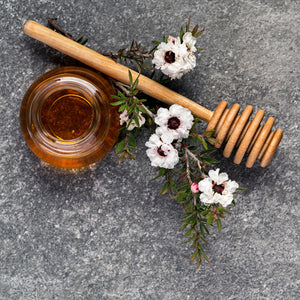
Loosing sleep? it could be dust mites
Dust mites could be preventing sleep
If you are already having trouble sleeping, stop reading this right now. I’m going to talk to you today about dust mites.
What, you might ask, do dust mites have to do with sleeping? My bed isn’t dusty. Well, they get their name from the fact that these tiny creatures (they’re half the size of the period at the end of this sentence) shed their skins, and this cast-off skin plus their dried fecal material get airborne and become dust.
Researchers think more than 50 percent of the cases of asthma, eczema and hay fever are caused by dust mites.
But it isn’t the dried skin and droppings floating around in the air that is why I asked about your sleep habits. You see, these mites spend all of their time in your bed. In fact, the estimates run anywhere from 100,000 to 10 million mites can be sharing your mattress with you.
Of course, you’ll never see them, no matter how many there are. Their tiny size and their translucent bodies make them, for all intents and purposes, invisible. The inventor of the microscope, Anton van Leeuwenhoek, was the first person to actually observe them back in 1694. You can imagine the sleepless nights he had for a while. These mites are downright ugly to look at.
The reason they like your bed so much is that it’s an almost perfect environment for them.
Their favorite food is you -- or what used to be you. They don’t chew your flesh or suck your blood. They eat the dead skin you shed. You lose over 50 million skin cells every week, and that’s if you haven’t been running around outside getting sunburned. I suppose that would be like grilled steaks to these little guys.
Add to that the warm and humid conditions under your blankets and they live happy but short lives. The humidity is the key. They like it around 70 percent or higher. In the old days, this wasn’t a problem. Our homes were more or less exposed to the same humidity as existed outside, but with the advent of air conditioning and central heating, that changed radically. Once the humidity drops below 50 percent, dust mites shrivel up and die.
It turns out that an unmade bed is unappealing to them, whereas a tightly fitted, well-made bed (like we had to do in the military) allows them to survive quite well. Of course, beds aren’t the only place they can live. A dust mite can snuggle into upholstered furniture, in shag or other long-fibered carpets or rugs and in plush toys.
You’ll never completely eliminate dust mites from your home -- can’t be done -- but you can do things to significantly reduce their numbers.
Start with regular vacuuming. Go over your carpets, curtains, furniture and rugs. This will pick up skin flakes and fecal material as well as mites. Throw away the bag once you’re through. Dust mites can live inside of the bag just as well, if not better, as they can in your bed. Use mattress covers that are specifically designed to inhibit dust mites. Remove soft toys from the bedroom or periodically wash them in hot water or freeze them for 24 hours. If you decide to freeze them, you’re still going to need to clean them to remove the allergens.
To get rid of dust mites in your bed, try this; add 10ml bottle of pure Manuka oil to a quart (approx 1 litre) spray bottle, the sort of bottle you use to spray the kitchen bench, and top it up with warm water and half a teaspoon of dishwashing liquid. The dish liquid will help to emulsify the oil and keep it mixed with the water.
Next time you wash your sheets, strip the bed, and with the nozle set to mist, lightly spray the surface of your mattress, leave it exposed all day to dry and remake the bed with clean sheets, you will have eliminated the vast majority of dust mites on your mattress.
And yes it will be totally safe to sleep on it, it might be the best nights sleep you have had for some time.



Leave a comment